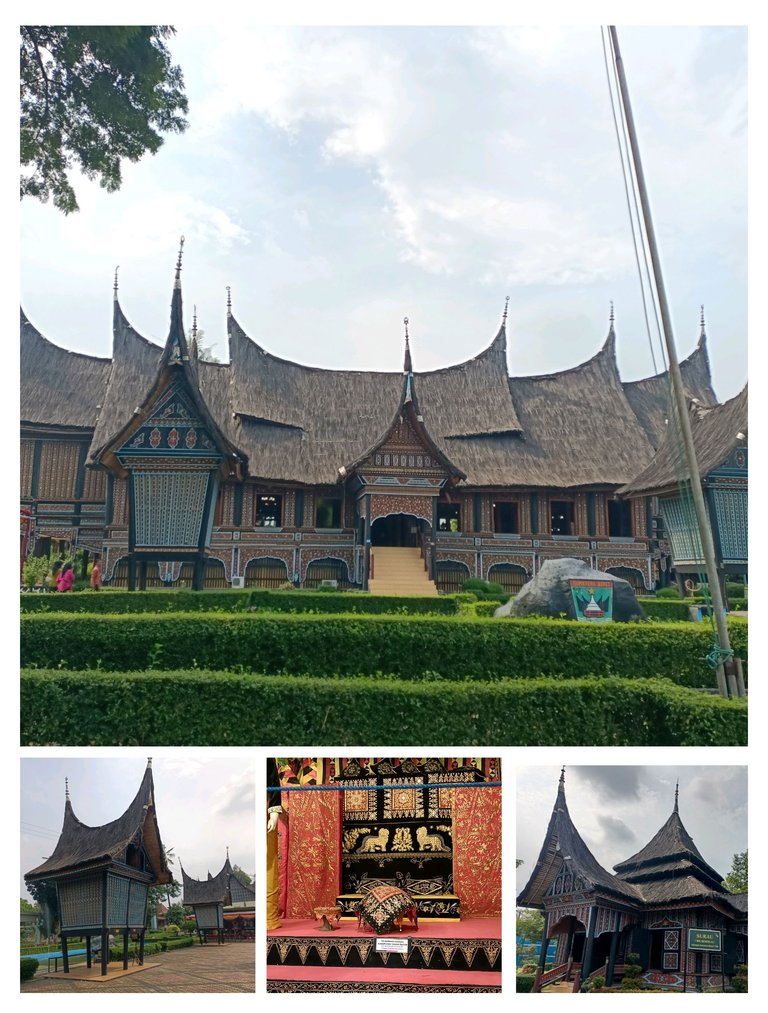
.
Still getting wet about traditional houses from across the Indonesian archipelago, this time we're going to take a tour of the exterior and interior diorama of a traditional West Sumatran house.
Maybe some of you have heard that one of the foods that once became number one in the world for its deliciousness is rendang. Yep! A dish made from beef that is processed for hours does create a flavour that is no joke.
However, it's not about the rendang this time, but West Sumatra is the origin of this rendang dish.
Rumah Gadang
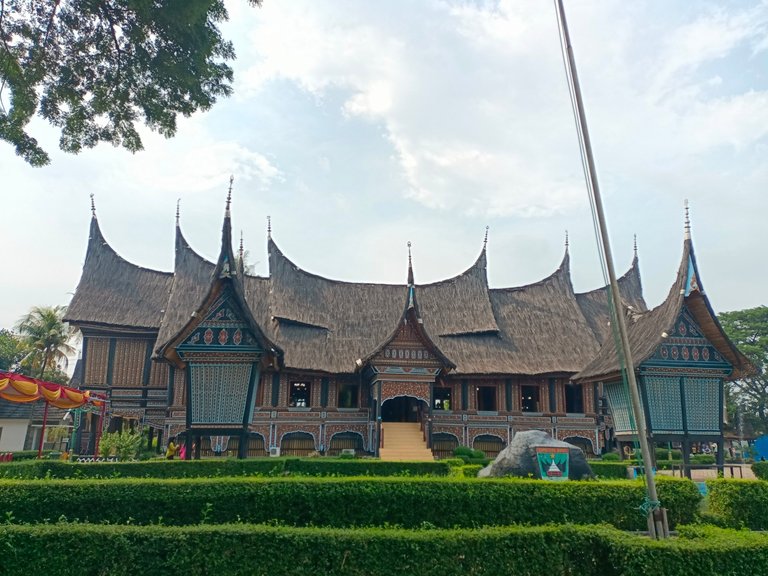
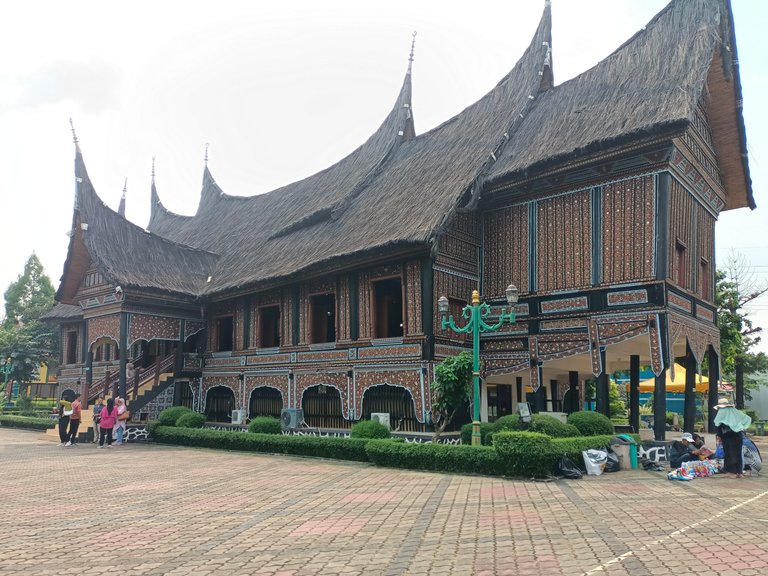
It seems that the house of the Minangkabau tribe in West Sumatra is indeed iconic and famous for the splendour of its carvings on the front of the facade.
However, maybe what makes us stunned is the shape of the roof which is layered or stacked with the tip made pointed like a horn. It is said that this is symbolic of buffalo horns, as a symbol of victory in ancient times.
Rumah gadang has access to the main room in the form of a staircase right in the middle. If we look more closely, of course we increasingly realise that the entire surface of the front and sides is filled with carved flowers and other shapes. Indeed, this Gadang house is highly admired for its architectural beauty.
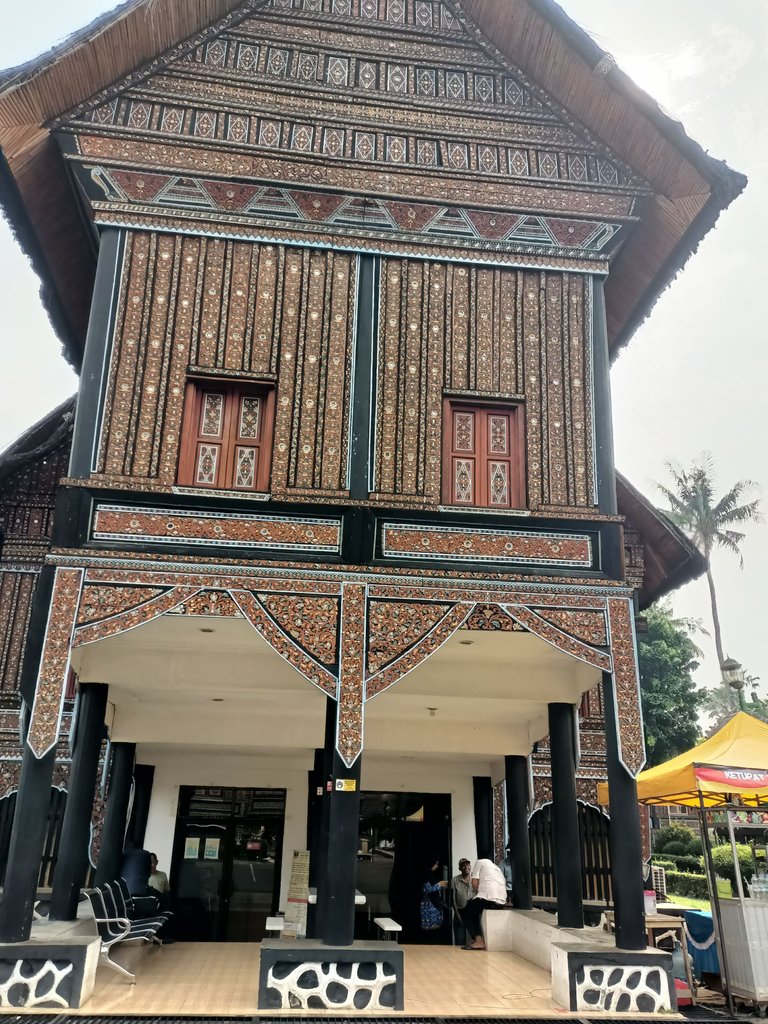
On the outside of the main house, there is a separated building with a simpler and smaller shape, it is used as a barn to store the harvest of the homeowners. The design and carvings are similar to the main building.
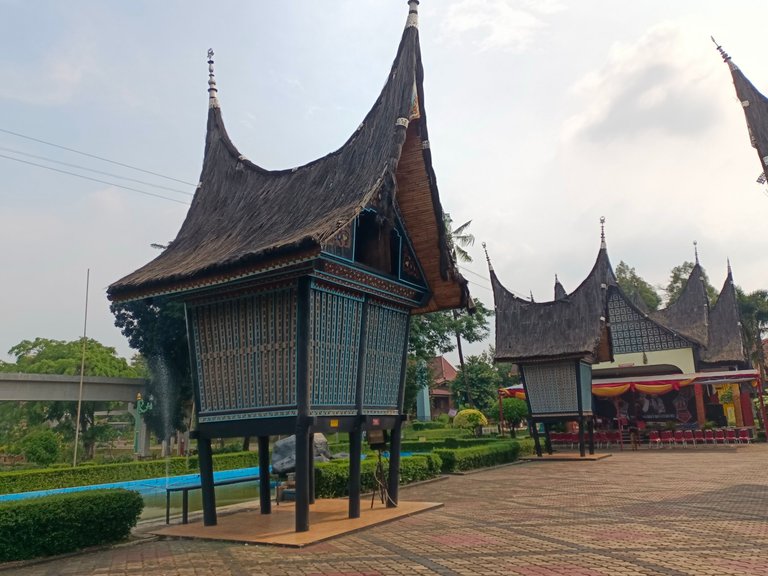
Next to the main house, there is a musala model that is used for prayers for Muslims. Do you see the roof? Yes, for the most traditional building, the roof is indeed used with thatch or nipah leaves. However, gradually, people replaced it with other materials, as it became increasingly rare to find nipan trees in large quantities.
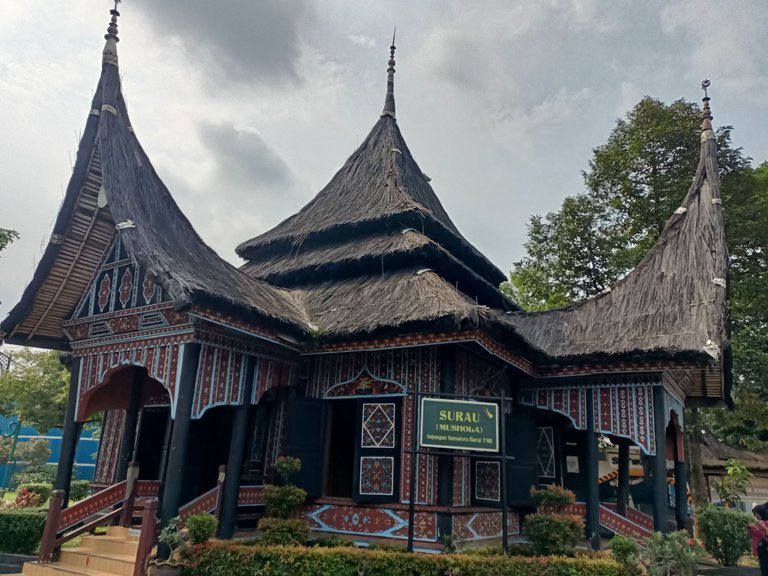
The inside of the house is used to display a collection of traditional clothes and tools
If the original house is a partition by partition to limit a room, however, the Gadang house in the mini park, the main part of the room is used to show various traditional clothes from various tribes in West Sumatra , along with traditional tools used in the past era.
So, let's take a little tour. Once inside, you see the gold-coloured columns. All the columns are made of wood covered with gold-coloured cloth. Do you see the ceiling? Yes, the ceiling is made of wooden slats that are painted in a smooth lacquer colour.
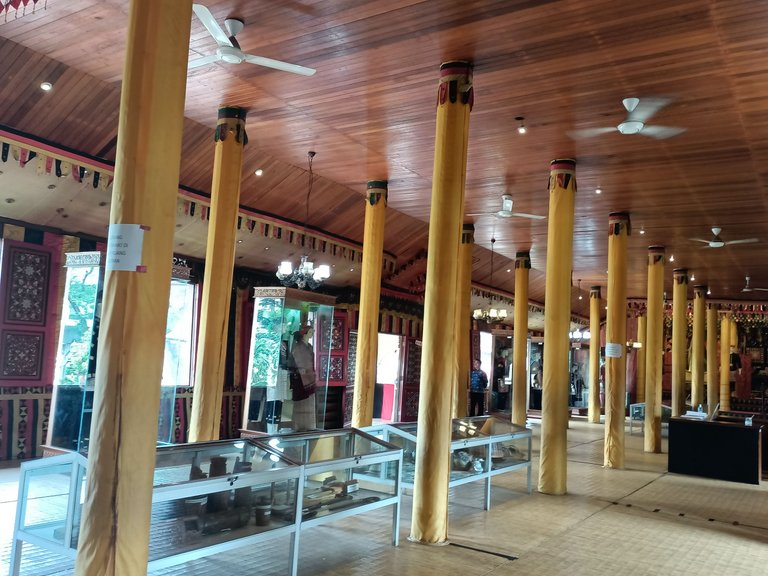
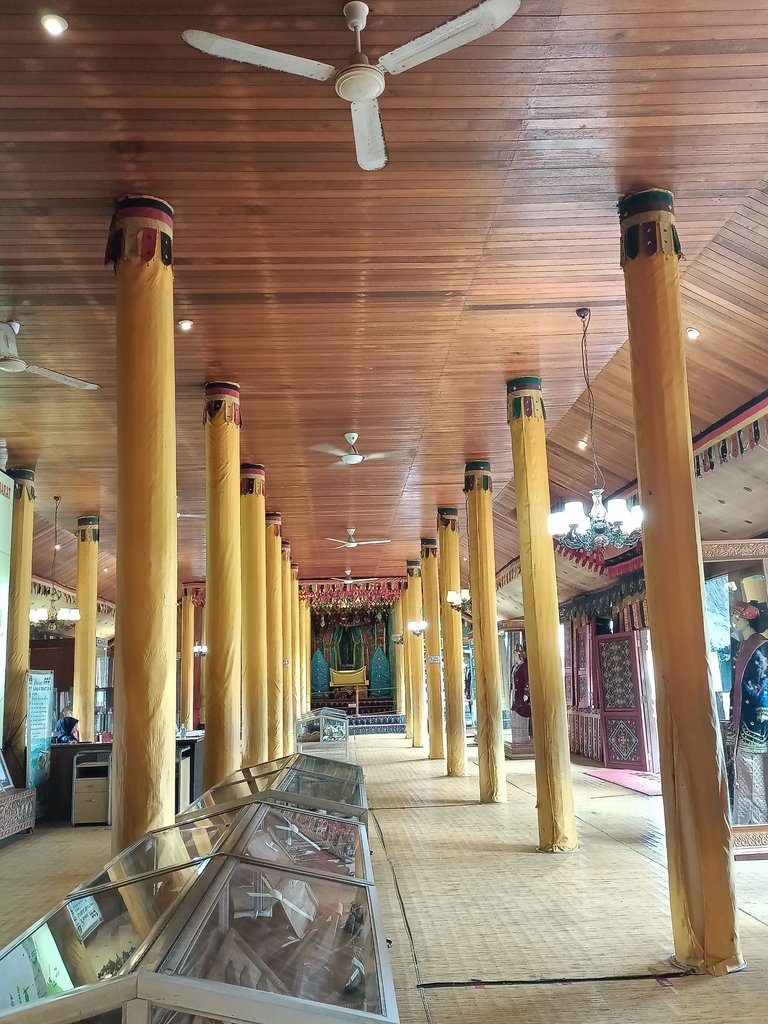
In the centre of the room is an elongated display case containing agricultural tools, rattan crafts, and earthenware cutlery.
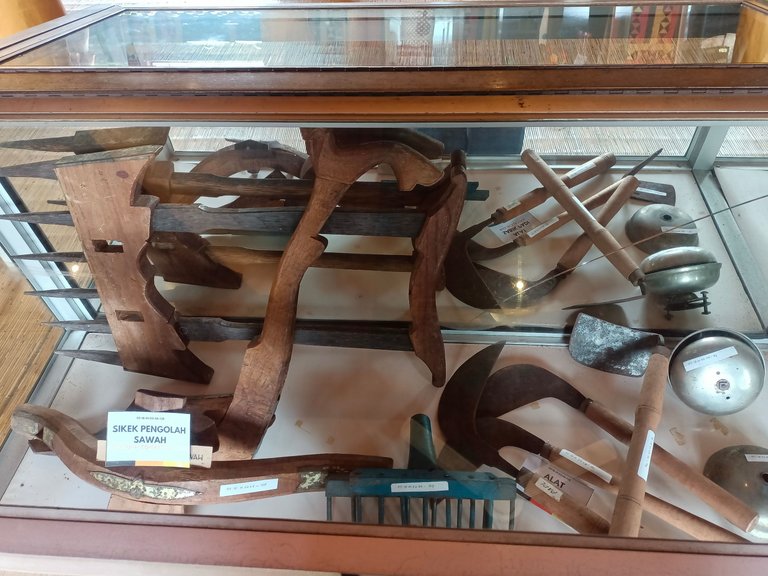
On the right side of the wall is a row of glass cabinets with a collection of traditional clothing from various tribes.
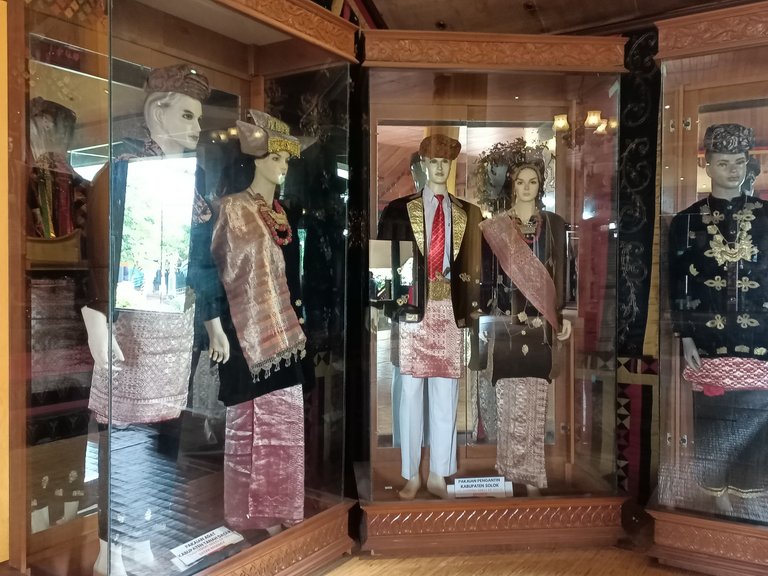
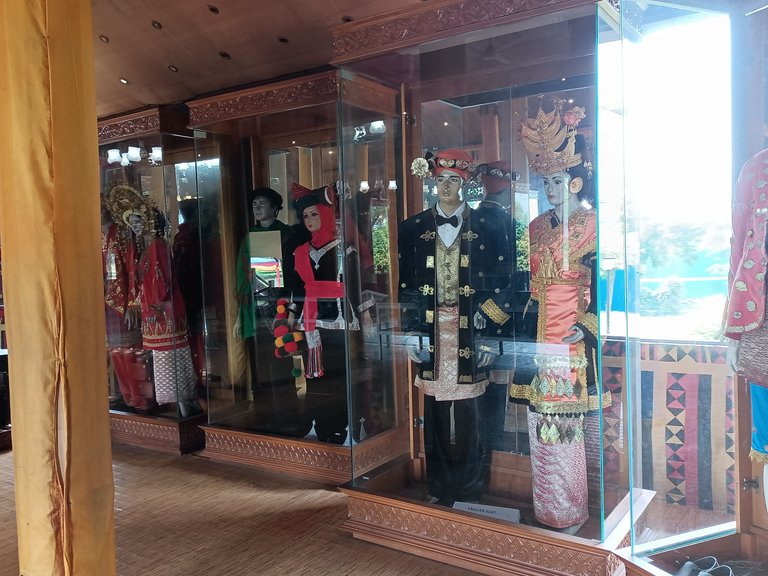
What's interesting about this room is that there are a lot of room ornaments that we can see, such as the roof decoration on the ceiling which is actually made of cloth.
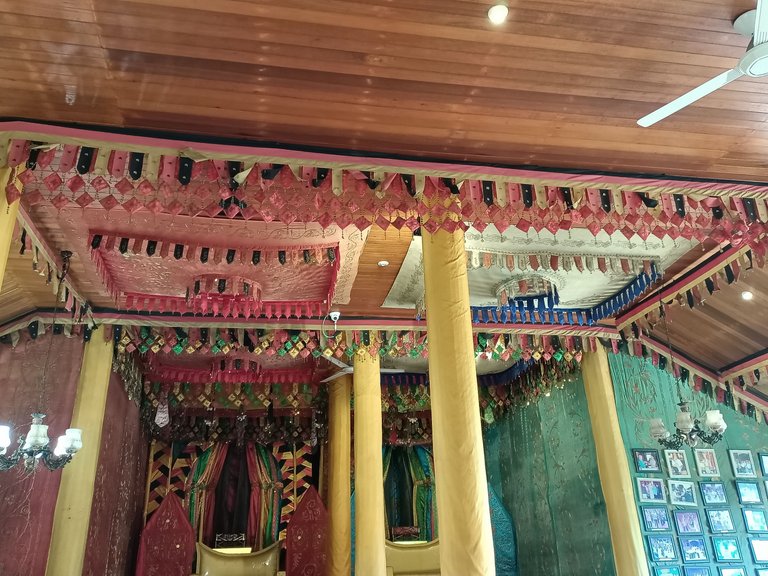
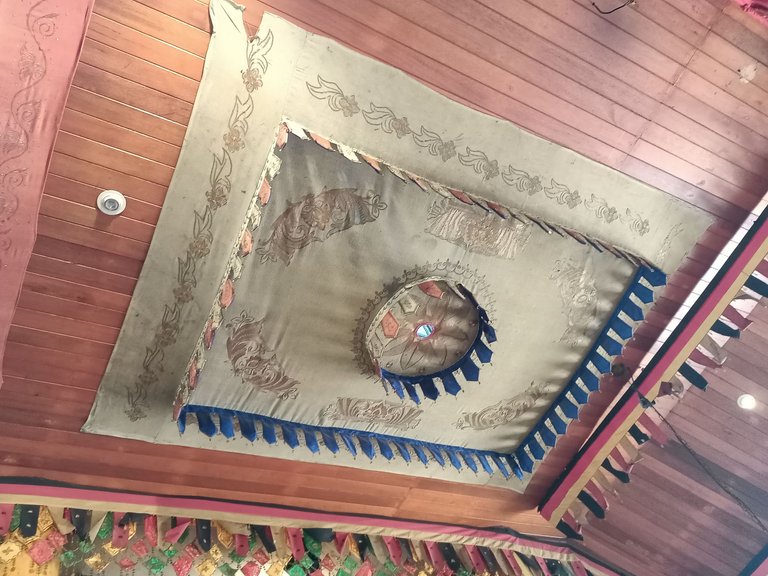
On the left side, there is a row of talempong musical instruments that are similar to musical instruments in Central Java as well as in Riau Province. I came to the conclusion that this instrument is indeed spread throughout the country.
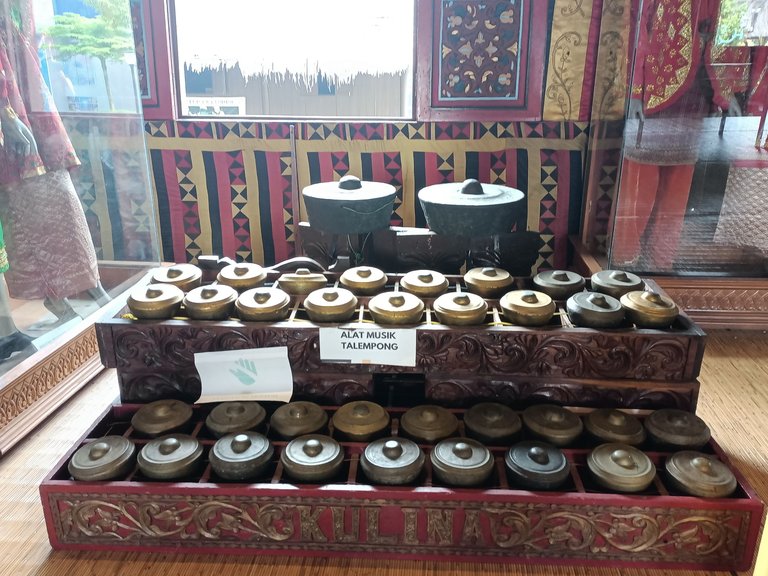
But what's interesting about this room is that visitors can also see examples of aisles from several tribes in the province. With the many ornaments used in the aisle and the bright colours that adorned the entire aisle, it made the wedding seem crowded and luxurious.
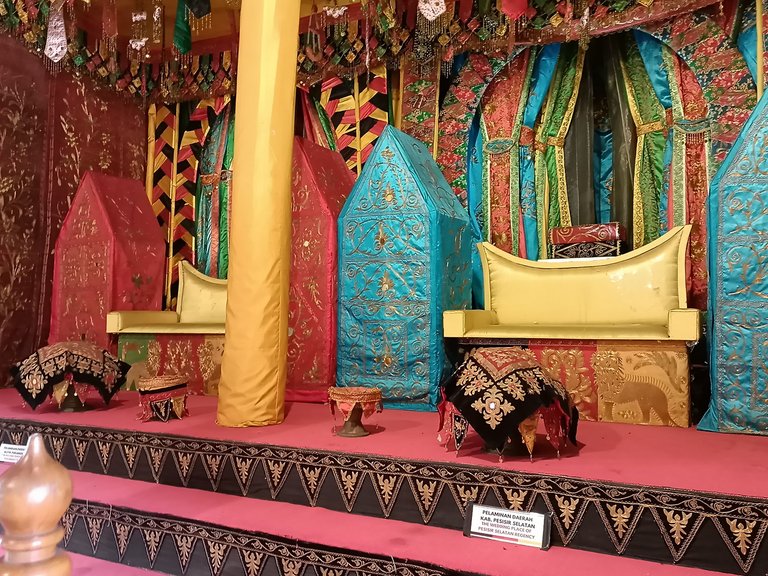
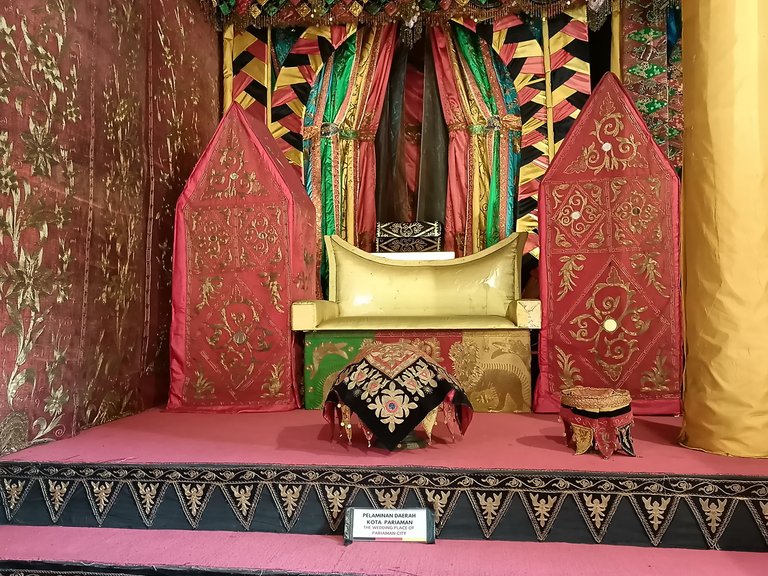
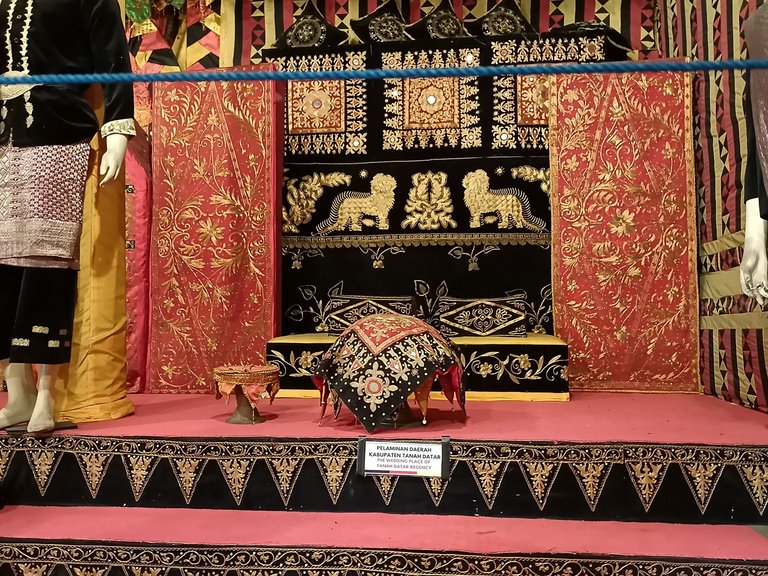
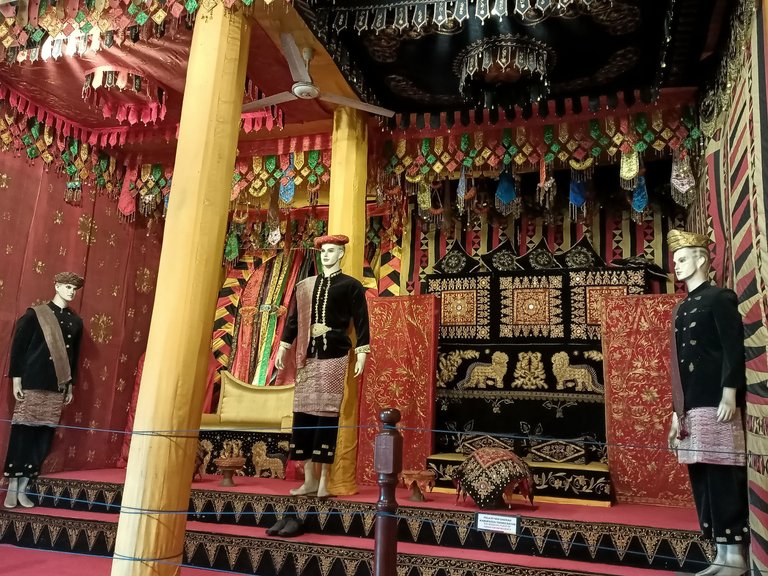
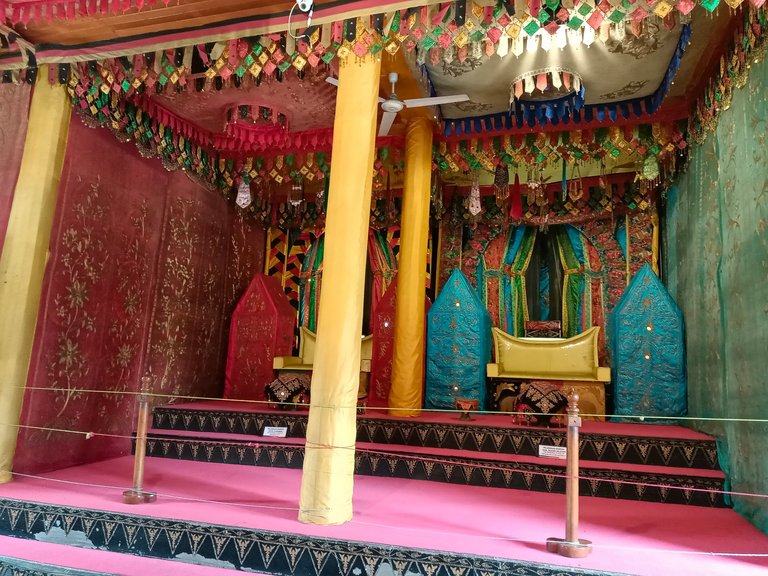
In addition, examples were given of bridal rooms decorated with lapi-lined mosquito nets, along with examples of beds.
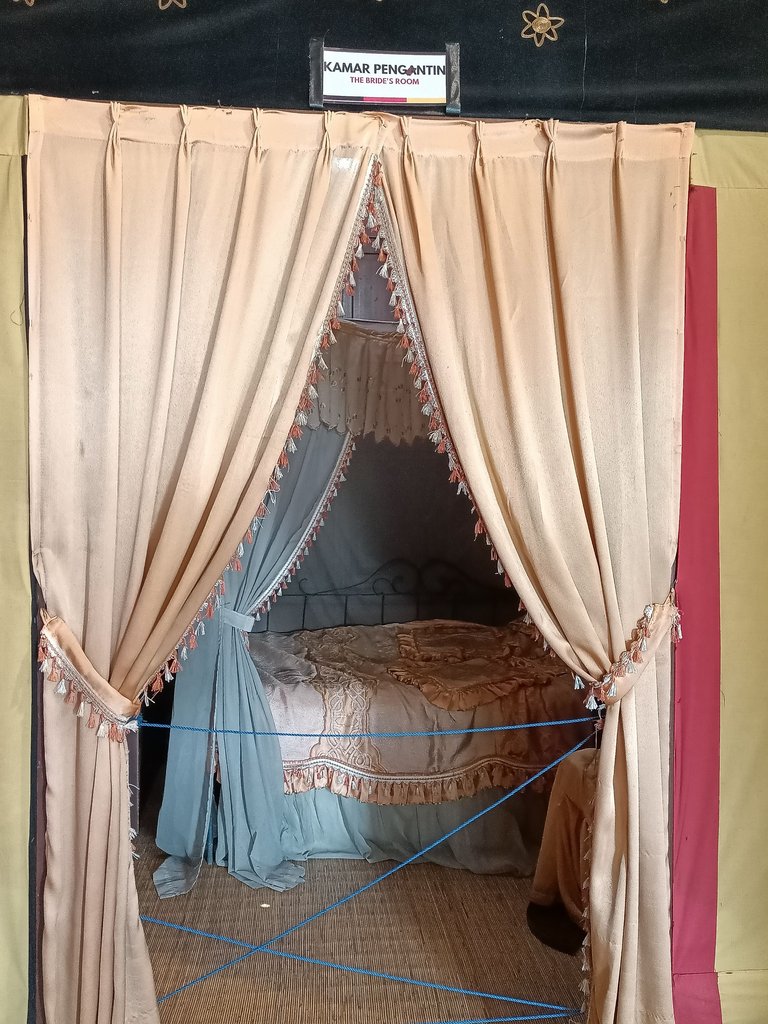
That's the end of our journey. Thank you for following my journey. See you next post!

Hi, I am the child of the universe, I like to read books with various genres. I was born in the city of batik but can't draw batik yet. I want to be a novelist, but my works are only short poems that are included in anthology books.
please share my content if you feel my content is good for everyone to read. Thank you. Let's be friends!
The Gadang house has a beautiful and attractive design, I like the decoration of the facade and the patterns with geometric figures, the interior is very interesting especially for the columns and colorful displays.
That's right, this house model can even be a kind of tribal representative in Indonesia, because it is so iconic. Thank you
Traditional Indonesian houses are perfect cultural symbols of the nation's architectural heritage. And the Rumah Gadang is absolutely a traditional masterpiece that has become iconic. Of all its typical characteristics, the pointed roofs (symbolic of triumphant buffalo horns) are legendary and have become my favorite element. Amazing feature @titisnariyah! ☺️
Yashh.. that's the iconic buffalo horn. I forgot to mention it in my writing, because I thought it was widely searched for. The symbol also represents their tribe, the Minangkabau tribe.
Thanks for stopping by, @storiesoferne
Travel Digest #2382.
Become part of our travel community:
- Join our Discord
Hiya, @ybanezkim26 here, just swinging by to let you know that this post made it into our Honorable Mentions in Your post has been manually curated by the @worldmappin team. If you like what we're doing, please drop by to check out all the rest of today's great posts and consider supporting other authors like yourself and us so we can keep the project going!Helo my dear @ybanezkim26 and @worldmappin tim thanks a lot for supporting my post.
Keep up the great work 💪
rumah gadang is always charming
Totally agree, always charming and iconic
You can check out this post and your own profile on the map. Be part of the Worldmappin Community and join our Discord Channel to get in touch with other travelers, ask questions or just be updated on our latest features.
Hi @titisnariyah. The distinctive pointed roofs of this traditional house have definitely become iconic metaphors of Indonesian architecture. It also connects to the local culture and blends perfectly with the vernacular landscape. Spectacular project indeed! ☺️
Obviously. That's why I'm always amazed by more traditional architects, because of the complexity of detail that can be created with tools that were once limited. I appreciate those involved.
Thanks a loy for the aprrecition, @archmoments